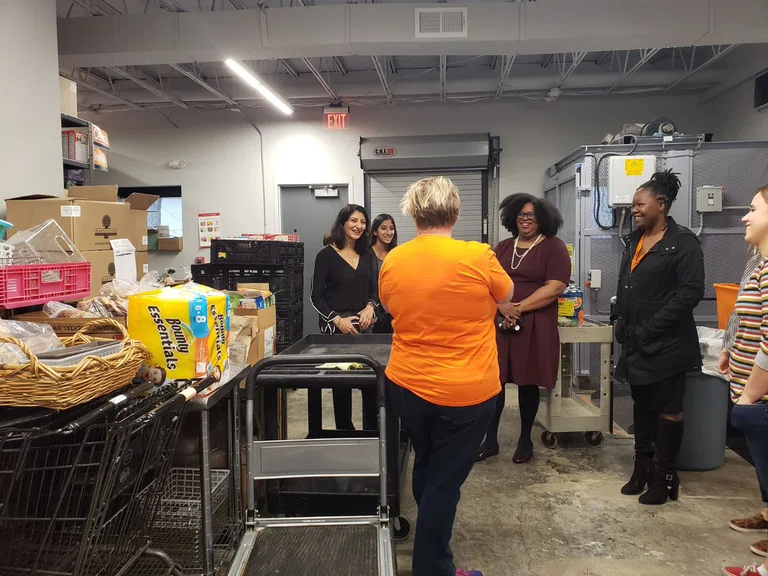


result
Addressing Food Allergy Equity Through Research, Practice and Policy
Twenty years ago, Ruchi S. Gupta, MD, MPH, was starting out as a researcher focused on asthma disparities. But as she dug deeper into the research, something nagged at her. “It was clear we knew a lot about disparities when it came to asthma and atopic dermatitis,” she said, “but we didn’t know nearly as much about how disparities affected food allergy patients.” The topic quickly became an area of interest for her, and she began dedicating more research time to the topic of food allergy, its prevalence and disparities surrounding it.
There’s a lot more data out there about equity and food allergy now. “Maintaining an allergen-free diet is not only challenging, but more expensive,” Dr. Gupta said. “For individuals and families with lower incomes, regularly obtaining safe food can be difficult. We see in the data that low income and minority families tend to spend less money on safe foods and spend more money on emergency department visits.”

Ruchi S. Gupta, MD, MPH
Dr. Gupta is the founding director of the Center for Food Allergy & Asthma Research (CFAAR) at Northwestern University Feinberg School of Medicine and Ann & Robert H. Lurie Children's Hospital of Chicago. She and her team conduct research on the prevalence of food allergy in the United States, the economic cost of food allergy and asthma, and disparities.
Their research has examined food allergy equity from a number of angles including food insecurity in food allergy patients during COVID-19, clinical tools that can help address food allergy equity barriers and, most recently, a paper published in JAMA on the racial, ethnic and socioeconomic differences in food allergy prevalence across the United States of America.
Dr. Gupta and her team also work with their local community and with different groups on projects in food allergy equity. Recently, they’ve worked with the Food Equality Initiative, which is trying to get safe, allergy-friendly foods into food pantries and create online resources for underserved families. She and her team have also visited food pantries to survey clients, asking about food issues such as food allergies, access to safe foods and more. “We’re going straight to the source to really see what these families are struggling with,” said Dr. Gupta.

Dr. Gupta and her daughter visiting the Food Equality Initiative (FEI) team in Kansas to learn more about their food pantry system. FEI prioritizes providing safe foods for families with food allergy and celiac disease who are facing insecurity.
Food equity policy changes are one way to attempt to address these disparities. Brian P. Vickery, MD, FAAAAI, and Aikaterini Anagnostou, MD, MSc, PhD, FAAAAI, Past Chair and current Chair of the Adverse Reactions to Foods Committee, met with staff from the USDA Food & Nutrition Service office and later with the Senate Committee on Agriculture, Nutrition, and Forestry staff about how important early introduction is for food allergies and how disparities come into play. They were able to get report language in the appropriations proposal in support of including early introduction in the Senate Appropriations Committee report in June of 2023. You can read the testimony the AAAAI submitted on the issue here.
Ensuring that those utilizing the Special Supplemental Nutrition Program for Women, Infants, and Children (WIC) receive peanut-containing foods in the 0-1-year age WIC package can help prevent future allergy development in underserved populations. It’s just one of the many policy issues the AAAAI is focusing its advocacy efforts on to address food allergies.
There are many efforts underway to address the issues of equity in food allergy, but there’s more that can be done on an individual level. According to Food Insecurity in the Food Allergic Population: A Work Group Report of the AAAAI Adverse Reactions to Foods Committee, which was published in 2022 and Dr. Gupta helped author, most allergist/immunologists do not screen their patients for food insecurity.
“It’s vital that we screen our patients for food insecurity and provide them with the right resources, if necessary,” Dr. Gupta said. “The work group report provides resources to help healthcare professionals start screening for food insecurity, and also helps get healthcare professionals the right resources to pass along to patients.”





